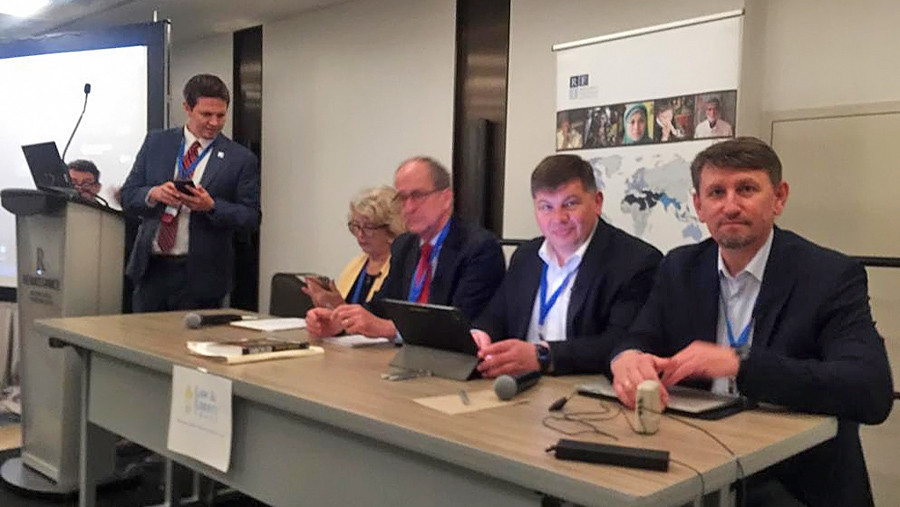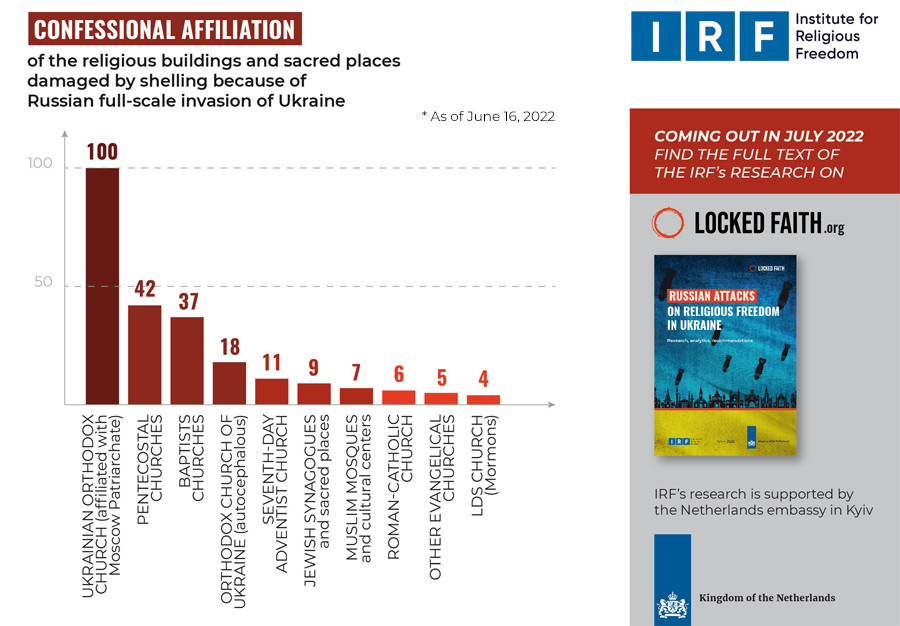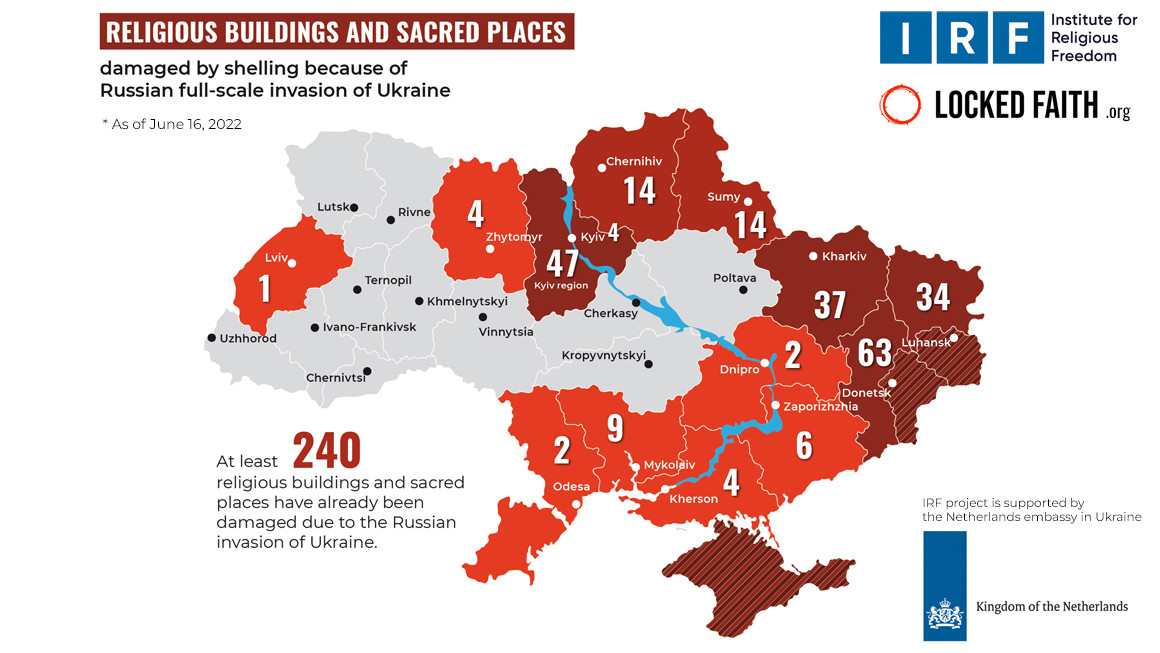As a result of Russian aggression against Ukraine, the most significant number of churches, mosques, and synagogues were destroyed in the Donetsk region – 63. The second place in terms of the number of religious buildings destroyed is the Kyiv region – 47.
The war also caused large-scale destruction and damage to churches and prayer houses in the Kharkiv region (37) and in the Luhansk region (34).
On June 29, 2022, the Institute for Religious Freedom presented the summary of its research on the impact of the Russian invasion on faith-based communities in Ukraine at the Summit on International Religious Freedom, held in Washington, D.C. The side event dedicated to the religious situation in Ukraine was supported by Law & Liberty Trust and Religious Freedom Institute.

Oleksandr Zaiets, IRF Board Chairman, noted in his speech that since February 24, 2022, the Russian attacks on religious freedom in Ukraine have increased in cruelty.
As the IRF Board Chairman stated, Russia's imperialistic policy, based on the “Russkiy Mir” (Russian World) ideology, is now being openly implemented in occupied Ukrainian territories. For example, by removing Ukrainian books from libraries and burning them in public, banning the use of the Ukrainian language in the public sphere, and even on road signs.
Besides, the occupational authorities strive to control all religious activity, force local religious communities to justify Russian aggression, establish subordination with the Russian religious centers, and compel pro-Ukrainian religious actors to cooperate using threats and torture.
According to the IRF’s research, Russian media and religious leaders, like Patriarch Kirill of Moscow and All Russia, are justifying the war against Ukraine with propaganda about the supposed protection of Orthodox believers of the Moscow Patriarchate and Russian speakers. Instead, Russian military aircraft and artillery destroy both houses of worship and believers, regardless of language, denomination, and ethnicity.

It is noteworthy that most of the religious buildings affected by the Russian shelling belong to the Ukrainian Orthodox Church, which until recently was in canonical unity with the Moscow Patriarchate.
Besides, Dr. Maksym Vasin, IRF Executive Director, noted that considering the terrorist methods of war used by Russia, it can now be stated that every religious community in Ukraine is in some level of danger.
Based on the conducted research, the Institute for Religious Freedom recommends:
- For the US Senate and President – to finally pass, sign, and implement the H.R. 5408 Ukraine Religious Freedom Support Act.
- For the EU and other democratic states – to introduce personal sanctions against Russian officials, religious leaders, media workers, and other individuals responsible for justifying and (or) implementing repressions against Ukrainian religious actors and faith-based communities.
- To create a Special Tribunal for the Punishment of the Crime of Aggression against Ukraine.
- To facilitate the investigation by the International Criminal Court of any war crimes, crimes against humanity, and genocide that are being perpetrated on the territory of Ukraine.
- For the EU, USA, UK, Japan, and other UN member states – to support Ukraine's efforts to investigate and bring to justice those responsible for war crimes, crimes against humanity, and crimes of genocide committed in the framework of Russia's war against Ukraine. In particular, through establishing international mechanisms and tools in addition to national investigation and judgment, for example, in the format of an international hybrid tribunal for war and other international crimes.
- For the UN and OSCE – to demand Russia to provide unhindered access to the occupied Ukrainian territories, including Crimea, and the people detained there for independent monitoring missions to observe the situation with religious freedom and other human rights.
From the first days of the full-scale Russian invasion, the Institute for Religious Freedom has begun monitoring and collecting data on the impact of the war on faith-based communities in Ukraine. IRF interviewed national and local leaders of most churches and religious associations in Ukraine and filmed testimonies of targeted shelling of houses of worship and attacks on religious actors.
The full text of IRF's research will be presented in July of 2022 with the support of the Embassy of the Kingdom of the Netherlands in Ukraine. The IRF’s research will deliver a detailed picture of the significant impact of the Russian aggression on religious freedom in Ukraine.
Infographic: Anna Bukovska (Fayno Development)
